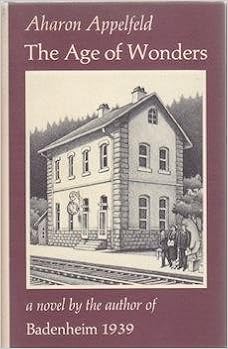
This novel relates the impressions of a pre-teen Austrian Jewish boy in an assimilated family, a family that refuses to associate with other Jews, in the year when anti-Semitism begins to rage. His father despises Jews and makes all kinds of disparaging remarks about them, even though he is Jewish. The father is a successful and popular writer whose books are rejected when Austria begins to express its anti-Semitism. His publisher stops sending him money and he becomes bankrupt. He falls apart. He blames his situation on Jews. He argues with his wife and separates from her. A priest advises him to leave Austria and go to Palestine, but he refuses, insisting that he is an Austrian and should be treated as one.
The book’s title probably refers not only to the boy’s wonder, his difficulty in understanding what is happening around him and the reactions of Austrians, both Jews and non-Jews. It probably also refers to the assimilation that the boy sees and his inability to understand why some Jews are trying to save themselves by converting to Christianity, even members of his own family.
Appelfeld does not describe the horrors of the holocaust in this novel because the focus is self-hatred, but there is a scene where the Jews are required by the Nazis to congregate in a synagogue, from where, unknown to them, they will be transported to the camps. The scene is written to reflect the same self-hatred by the assimilated Jews.
The last third of the novel tells about the return of the boy from Jerusalem to the city of his youth some 30 years later. He also had some family problems. He is searching for something that he is unable to find. The city has no Jews, but there are some people with some Jewish ancestry, and the self-hatred is continued long after the holocaust, as does anti-Semitism, even among his father’s old friends.
No comments:
Post a Comment